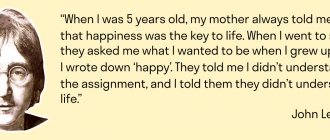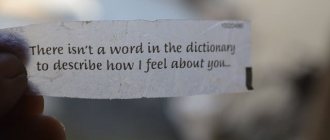Surely you have asked yourself the question more than once: why are some words in the English language so melodic and beautiful? And the reason is not that this language is the most popular, but that you have the opportunity to discover another world in which your capabilities will multiply. Very often, people decide to learn English precisely because they like the sound of individual words.
Why are there so many beautiful words in English?
Why are English words so beautiful that millions of people like them?
Here are some reasons:
- Phonetics of language . English is a euphonious language. If you do a little phonetic analysis, you will get: English has a lot of long and open diphthongs and vowels;
- there are no hissing sounds following each other;
- there are no hard-to-pronounce words in English (although they have their own peculiarities);
- many combinations of consonant sounds –m, –l, –n, –v, –d, –b with vowels –o, –a, –e, –u, –i, –y, which are easy to pronounce and pleasant to hear.
- delicacy [ˈdɛlɪkəsi] – delicacy;
- the presence of diminutive words;
Interesting surveys of British linguists
British linguists constantly conduct various surveys. In the latter, foreigners were surveyed on the topic: “Which English words do you consider the most beautiful?”
Foreigners were chosen because it is difficult for an Englishman to determine its beauty by the sound of a word. After all, a native speaker always attaches its meaning to a word. And foreigners often like words with an unknown meaning, but beautiful in sound.
The winner of the survey was the English word “mother” [ˈmʌðə] - mother. This word is euphonious and understandable in any language.
The main factors influencing the result were social and age groups:
- people of the older generation liked philosophical words and eternal concepts;
- for housewives - words related to shopping, TV series and household items;
- for the younger generation - romantic, love, music-themed words;
- politicians and entrepreneurs – clear terms of the political and business sphere.
As a result, it turned out that the following factors play a decisive role in lexical preferences:
- Job;
- human habitat;
- hobbies;
- Lifestyle.
Everyone has their own view on beautiful words.
What linguists say
British linguists, huge fans of various surveys, recently came up with another survey to identify the most beautiful words in their language. For this purpose, they interviewed many foreigners. Ask - why foreigners? Apparently, it is difficult for a native Englishman to dispassionately determine the beauty of a word by its sound, since he will always tie the word to its meaning. On the contrary, non-native speakers often like beautiful, albeit incomprehensible, words.
The winner in the survey, of course, was the beautiful and understandable word in all languages, and this is not surprising - we have known it from the very moment of birth.
Further, the survey results differed in different age and social groups:
- young people liked
- for older people - philosophical, “eternal” concepts
- businessmen and politicians - more specific and “tangible” terms of business and political life
- for housewives - words
As a result, the survey did not find anything particularly surprising. It has been proven once again that the environment in which a person lives, his lifestyle, work, hobbies - all this influences lexical preferences. Everyone has their own beautiful words.
If you are tired of learning English for years?
Our readers recommend trying 5 free lessons of the course “ENGLISH BEFORE AUTOMATION” with Anastasia Bozhok.
Those who attend even 1 lesson will learn more than in several years! Surprised?
Get 5 free lessons here...
No homework. No cramming. No textbooks
From the course “ENGLISH BEFORE AUTOMATION” you:
- Learn to write competent sentences in English without memorizing grammar
- Learn the secret of a progressive approach, thanks to which you can reduce the acquisition of English from 3 years to 15 weeks
- You will check your answers instantly + get a thorough analysis of each task
- Download a dictionary in PDF and MP3 formats , educational tables and audio recordings of all phrases
You can get 5 lessons for free here
Adjectives
The essence of adjectives is to describe objects and phenomena, give them new shades and characteristics, and endow them with new unique properties.
demure [dɪ'mjʊə] - chaste, modest dissembling [dɪ'sɛmb(ə)lɪŋ] - hypocritical, pretending gorgeous ['ɡɔ:dʒəs] - magnificent, beautiful hilarious [hɪ'lɛ:rɪəs] - hilarious sonorous ['sɒn( ə)rəs] - sonorous sophisticated [sə'fɪstɪkeɪtɪd] - refined, refined twinkling ['twɪŋk(ə)lɪŋ] - shimmering, sparkling wonderful ['wʌndəfʊl] - wonderful, wonderful
Read also
Test: Try to distinguish Present Perfect from Past Simple
Kind words in English
How can you affectionately call your loved one in English?
There are many gentle, pleasant words for this, for example:
| № | Affectionate words in English | Transcription in Russian letters | Translation |
| 1 | Amore Mio | [amore mio] | my love (Italian classic, a familiar expression to everyone) |
| 2 | Baby | [ˈbaby] | baby (this can be called both a guy and a girl) |
| 3 | Baby Boy | [ˈbaby boy] | Baby |
| 4 | Captain | [ˈcaptin] | captain (for men hungry for adventure and ready for new discoveries) |
| 5 | Cutie Pie | [ˈcutie pie] | pie |
| 6 | Honey | [ˈhani] | sweetheart/darling; sweet/sweet |
| 7 | Iron Man | [ˈian man] | iron man (for courageous strong men) |
| 8 | Juliet | [ˈjuliet] | Juliet (romantic nickname for a lover) |
| 9 | King | [kin] | king |
| 10 | My hero | [may ˈhierou] | my hero |
| 11 | My love | [may love] | My love |
| 12 | Romeo | [ˈroumiou] | Romeo (romantic nickname for a loved one) |
Terribly beautiful vocabulary
At the same time, some cool words in English sound very sophisticated, but their translation does not mean the best phenomena and concepts. Such “terribly beautiful” vocabulary is also used in speech to make it more emotional and richer.
| Beautiful English vocabulary with negative connotations | ||
| English | Pronunciation | Translation |
| oblivionListen | [əˈblɪvɪən] | oblivion |
| betrayalListen | [bɪˈtreɪəl] | betrayal |
| nefariousListen | [nɪˈfɛːrɪəs] | vile |
| consequencesListen | [ˈkɒnsɪkwənsɪz] | consequences |
| sadnessListen | [ˈsædnəs] | sadness |
| languorListen | ['laŋɡə] | weakness, fatigue |
| lassitudeListen | ['lasɪtju:d] | apathy, fatigue |
| nemesisListen | ['nɛmɪsɪs] | retribution |
| unfortunatelyListen | [ʌnˈfɔːʧnɪtli] | Unfortunately |
| rebellionListen | [rɪˈbɛljən] | mutiny |
However, depending on the context, even words with a clearly negative connotation can be turned, if into a source of positivity, then into neutrally colored vocabulary.
Unusual words in English
There are also many unusual words in the English language. But what is their peculiarity? Let's consider them further.
| № | Unusual word in English | How to read | How to translate from English | What is special about the word |
| 1 | Aegilops | [aegilops] | Aegilops (plant name) | letters in words are in alphabetical order |
| 2 | Almost | [ˈolmoust] | almost, practically | |
| 3 | Indivisibility | [ˌindiˌvisionˈability] | indivisibility, indivisibility | the letter “i” appears 5 times in the word |
| 4 | Pneumonoultramicroscopicsilicovolcanokoniosis (or simply silicosis [sɪlɪˈkəʊsɪs]) | silicosis (disease name) | the word is very difficult to pronounce, it consists of 45 letters | |
| 5 | Smiles | [smiles] | smiles | The English joke that this is the longest word, because from the beginning to the end of the word there is a whole mile (from “s” to “s” - “mile”) |
| 6 | Strengths | [stress] | strength, stability | the word consists of 8 consonants and only 1 vowel |
| 7 | Uncopyrightable | [ˌanˈcopyrighttable] | not subject to copyright law | there is not a single repeating letter in the word |
Where did the soulful words come from?
Why is English so attractive to millions of people today?
The first comes Indeed, if we conduct a brief phonetic analysis:
- in this language there are practically no sibilants adjacent to each other
- many open and long vowels and diphthongs
- many combinations of English consonants -l, -m, -n, -b, -d, -v with vowels -a, -o, e, -i, -u, -y, etc.
- There are no difficult words to pronounce (such as our borscht), although English also has its own articulatory features.
The second is inherent
- Cosmopolitan - cosmopolitan
- Delicacy - delicacy
- Eternity - eternity
- Fantastic - fantastic
- Galaxy - galaxy
- Liberty - freedom, etc.
If we imagine that we are all children of the same foremother, then language memory lies dormant in our genes. The English language, in terms of borrowings, is like a sponge that has absorbed the most valuable linguistic forms over the centuries. Maybe that’s why he seems initially beautiful to us from birth
And the third undeniable
- colloquial slang and idioms
- use of diminutive suffixes and other attributes
Long words in English
Let's look at some of the longest words in English.
| № | Long words in English | How many letters are in a word | How to translate |
| 1 | Honorificabilitudinitatibus | 27 | have the ability to achieve honor (word from Shakespeare's play Love's Labour's Lost) |
| 2 | Antidisestablishmentarianism | 28 | name of a political movement of the 1860s in England |
| 3 | Floccinaucinihilipilification | 29 | worry about something minor |
| 4 | Pseudopseudohypoparathyroidism | 30 | pseudohypoparathyroidism (the name of a disease in which calcium metabolism is impaired) |
| 5 | Supercalifragilisticexpialidocious | 34 | superarchiextraultramegagrandious (from the song of the musical “Mary Poppins”) |
This list of long English words is far from complete.
There are words that are even longer and more difficult to pronounce. Some are generally considered unpronounceable and unprintable.
Basically these words include names:
- diseases;
- various solutions;
- dishes whose names include a list of ingredients;
- chemical processes and substances.
Synonyms for beautiful
Beauty surrounds us all the time, and as we learn English, it becomes clear that the adjective beautiful is not enough to describe it. These synonyms for the word “beautiful” in English will help diversify your speech:
- handsome – handsome (about men);
- pretty - cute;
- lovely – wonderful;
- stunning - amazing;
- gorgeous – magnificent;
- graceful – graceful;
- glorious - glorious, magnificent;
- delicate – gentle, elegant;
- magnificent - magnificent;
- elegant – elegant;
- pleasing – pleasant;
- nice-looking – pleasing to the eye, good-looking, beautiful;
- exciting - exciting.
Beautiful words to a girl
Special attention is paid to expressions that should be addressed to a girl - an acquaintance, friend, sister or lover. We have prepared a separate material about words that sound beautiful in English and are suitable for such a situation, available at the link above.
Beautiful words for a man
If you are looking for the most beautiful words and expressions in English that you can dedicate to a man, take a look at our article on this topic and you will find what you need there.
Words in English that do not exist in Russian
Over time, new words are born. This is how words appeared in the English language that have no analogues in Russian speech.
| № | Word in English | How to read | Translation/meaning of the word |
| 1 | Baggravation | [begreˈweishen] | alarm at the airport (when you see that other passengers’ luggage is already in place, but yours is not yet on the conveyor belt) |
| 2 | Book hangover | [beech ˈhenˌouve] | book hangover (immersing yourself in a book so much that after reading it the world seems unreal) |
| 3 | Closet music | [ˈcloset ˈmusic] | “music in the closet” (music that is listened to alone and not told to anyone that they love it) |
| 4 | Coffee face | [ˈcoffee face] | “coffee face” (the facial expression of a person who has not yet drunk coffee) |
| 5 | Cyberchondria | [cyberˈkandriak] | “cyberchondriac” (a person who suspects that he has some kind of disease and begins to nervously search for its symptoms on the Internet) |
| 6 | earworm | [ˈievem] | “earworm” (an obsessive song or melody that plays in your head and is difficult to get rid of) |
| 7 | First world problems | [fest weather ˈproblems] | first world problems (some of the difficulties of humans in modern society that would seem strange to people from undeveloped countries, for example, unstable Internet) |
| 8 | Football Widow | [ˈfootball ˈwidow] | “football widow” (wives whose husbands binge watching football broadcasts during important matches) |
| 9 | Gloatgram | [ˈgloitgram] | “boastogram” (an Instagram account in which only photos of luxurious life or travel are posted to the envy of everyone) |
| 10 | Grandparents | [ˈgrenˌpeerants] | grandmother and grandfather (in Russian there is no common designation for grandmother and grandfather) |
| 11 | iFinger | [iˈfinge] | finger staying clean while eating so you can use your phone at the same time |
| 12 | Like shock | [like shock] | It’s a huge surprise when your post gets a colossal number of likes on a social network |
| 13 | Refrigerator rights | [riˈfrigerate rights] | “rights to the refrigerator” (close relationship with someone) |
| 14 | Screenager | [screen] | a teenager who spends most of his time at the computer or on the phone |
| 15 | Serendipity | [serendipati] | “happy accident” (a person’s ability to draw serious conclusions from something accidentally noticed) |
| 16 | Siblings | [ˈsiblins] | siblings (common name) |
| 17 | To computer-face | [to kemˈpute-face] | computerize your face (look at the monitor, making a concentrated face so that others think that you are overloaded with work) |
| 18 | Wallflower | [ˈwallˌflower] | "flower on the wall" (shy person who doesn't dance at a party) |
Cool and short words in English
What cool and sometimes short slang words can be found in the English language:
| № | Cool words in English | How it reads and sounds | How it is translated and meaning |
| 1 | Ace | [ace] | trump card, point gained in a game, jack of all trades, ace |
| 2 | All right? | [ol right] | How is it? How are you? (expression means “How are you?”) |
| 3 | Blatant | [ˈbleɪtənt] | Something obvious obvious |
| 4 | Blimey | [blamey] | distorted “May I go blind!”, exclamation of amazement, surprise |
| 5 | Bob's your uncle | [bobz yor ˈunkle] | "Bob is your uncle" (used at the end of a sentence and means something similar to "Voila!") |
| 6 | Botch | [barrel] | work carelessly, blunder |
| 7 | Bottom line | [ˈbotham line] | final bottom line (as when solving the example in a column) |
| 8 | Budge up | [badge up] | expression to ask someone to make room for you, to make room |
| 9 | Cheers | [chiez] | "Cheers!" (when they say a toast) |
| 10 | Chin wag | [chin ueg] | nice sweet conversation |
| 11 | Dig | [dig] | "to get high, to drag around" |
| 12 | Diss | [dis] | speak about someone offensively, disrespectfully |
| 13 | Full of beans | [full ov beans] | “full of beans” (groovy, energetic) |
| 14 | Kudos | [ˈkyudos] | Bravo! Respect! |
| 15 | Pear-shaped | [pee shape] | “pear shape” (when, as a result of some action, everything went awry) |
| 16 | Piece of cake | [pis ov cake] | “Piece of Pie” (something easy to do, like eating a piece of pie) |
| 17 | Props | [props] | Respect! (respect, recognition) |
| 18 | Smashing | [ˈsmashin] | literally “striking”; amazing, magnificent |
| 19 | Sod's law | [sodz lo] | Sod's Law |
| 20 | Unreal | [anˈriel] | unreal |
Interesting words in English
The famous lexicographer Wilfred Funk has compiled a list of the most interesting words in the English language:
| № | Interesting words in English | Russian transcription | Translation |
| 1 | Alysseum | [aˈlyseum] | proper name, feminine |
| 2 | amaryllis | [ameˈrilis] | amaryllis |
| 3 | anemone | [eˈnemeni] | anemone |
| 4 | asphodel | [ˈesfedel] | asphodel, narcissus |
| 5 | bobolink | [ˈbobelink] | rice bird |
| 6 | camellia | [keˈmilie] | camellia |
| 7 | cerulean | [serulian] | azure |
| 8 | chalice | [ˈchalis] | bowl |
| 9 | chimes | [chimes] | chime, chimes |
| 10 | damask | [ˈdemask] | damask steel |
| 11 | dawn | [Don] | dawn |
| 12 | fawn | [background] | fawn |
| 13 | golden | [ˈgolden] | gold |
| 14 | gossamer | [ˈgoseme] | transparent, autumn cobweb |
| 15 | halcyon | [ˈhealthian] | kingfisher, serene |
| 16 | hush | [hash] | silence |
| 17 | jonquil | [ˈjonquil] | daffodil, bright yellow canary |
| 18 | lullaby | [ˈlalabai] | lullaby |
| 19 | luminous | [ˈlumines] | luminous |
| 20 | marigold | [ˈmarigould] | marigolds, marigolds |
| 21 | melody | [melady] | melody |
| 22 | mignonette | [ˌmineˈnet] | mignonette, French lace |
| 23 | mist | [mist] | haze |
| 24 | murmuring | [ˈmyomerin] | muttering, murmur |
| 25 | myrrh | [myo] | myrrh |
| 26 | oleander | [ˌowliˈende] | oleander |
| 27 | oriole | [ˈorioul] | oriole |
| 28 | rosemary | [ˈrosemary] | rosemary |
| 29 | tendril | [ˈtendril] | tendril, curl |
| 30 | thrush | [srash] | thrush |
| 31 | tranquil | [ˈtranquil] | calm |








